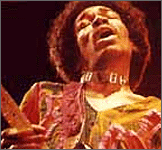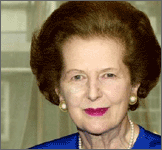Origins of Pax Americana: Inside
Out
By Michael Goldfarb
The origins of Pax Americana are very clear
to me: a discussion of America as Empire in the garden
of a pleasant if over-priced restaurant in Cambridge,
MA in the summer of 2000. I was with friends from
the Kennedy School, one an American who had been on
a fellowship in Oxford, at approximately the same
time Bill Clinton was there. The other was an English
woman who had followed the flow of academics from
the U.K. to the greener professional pastures of America.
My American friend and I were arguing that our nation
was now an empire. Our English colleague disputed
the idea. Her point, well taken, was that while America
may be a lone superpower, there were no administrative
structures of empire in place, so the U.S. was not
an imperial state. Our point was that no crisis in
the world was sorted out without direct American engagement
and that the WTO and the other international financial
institutions were American administrative organs by
proxy.
It was a heady conversation for happier times -
before September the 11th put a new urgency into discussions
of the nature of American power and how best to use
it.
Of course, I didn't start thinking of the U.S. as
an empire fit to be mentioned in the same breath as
the great empires of history from Rome to Britain
in that jubilant summer. I had my first inklings of
it long before, 32 years ago, to be precise, when
I had my first extended taste of living abroad.
You have to spend time overseas to appreciate the
full force of American power. This appreciation often
begins with seeing something that doesn't quite fit
in the local gestalt, an American object or person
occupying a place you would actually expect to be
filled by a native.
Examples:
In the summer of 1970 a couple of incidents started
me thinking.
July 1970 Frankfurt, Germany. I am traveling
with a friend around Europe and we are trying to reregister
a VW van purchased in Amsterdam for 35 dollars from
some American guys headed home. Frankfurt was not
yet the city of skyscrapers it has become. Those foundations
had been poured but the streetscape was just halfway
between reconstruction and the obliteration of the
War.
At a red light an American Army jeep pulls up with
a bunch of G.I.'s. We keep driving around the city
trying to find the Department of Motor Vehicles or
the German equivalent and at every red light there
are jeeps with American soldiers. It seems like there
are more jeeps than police cars, more American soldiers
on the streets than German policemen. The war was
over a quarter of a century ago. Surely the ratio
of American G.I.'s to German cops should be skewed
in favor of the Germans. We are long past the point
of occupation and pacification. The phrase "Roman
Legionnaires" goes through my brain as another
jeep passes us.
I look at my friend. "This is weird."
"Yes, it is," he replies.
 September 1970, Isle of Wight, UK. One year
after Woodstock, a massive music festival is held
on the Isle known to young Americans, if it's known
at all, from the lyrics of the Beatles' song "When
I'm 64." Earlier in the summer the documentary
Woodstock had come out and everyone of a certain age
wanted to be part of the experience. At one point
during John Sebastian's set the crowd starts chanting
"Woodstock! Woodstock!"
September 1970, Isle of Wight, UK. One year
after Woodstock, a massive music festival is held
on the Isle known to young Americans, if it's known
at all, from the lyrics of the Beatles' song "When
I'm 64." Earlier in the summer the documentary
Woodstock had come out and everyone of a certain age
wanted to be part of the experience. At one point
during John Sebastian's set the crowd starts chanting
"Woodstock! Woodstock!"
Sebastian gently remonstrates saying Woodstock was
its own thing and this crowd is going to create its
own thing. Wrong, John. This crowd doesn't want to
create its own thing. It wants the American thing.
This crowd wants to experience Woodstock, not some
European knock-off. And, come to think of it, when
almost all the performers are Yanks (including Jimi
Hendrix, playing what would turn out to be his last
gig) how could it be anything other than an American
thing?
It may have been easier in those days to spy American
things: soldiers or musicians, in unusual places.
International commerce hadn't reduced the world to
a single market. We barely knew one another. England
was an exotic place (if it's possible for a country
with such a miserable climate to be considered exotic).
I was frequently the first American many of my English
friends had ever met.
America was not a constant presence in young English
lives. America was a place known from the movies,
not TV. There was no daily dose of American sitcom,
hospital drama and detective show coming through the
box into the living room. News traveled fast but not
instantaneously so news footage from America did not
make up vast chunks of British news broadcasts.
But now... Maybe it's harder to see American power
where it didn't used to be. Because today America,
in its military, economic and cultural manifestations
is such a presence in daily life here and in the rest
of Europe that it is unusual in the local gestalt
to find something that isn't tinged by it.
 In Britain this is more pronounced. Prime Minister
Margaret Thatcher did everything in her considerable
power to steer Britain away from the European Union
and make it more like America. Prime Minister Tony
Blair, more pro-EU than Lady Thatcher nevertheless
has pursued a diplomatic policy that positions Britain
as a bridge head between the U.S. and the continent.
In Britain this is more pronounced. Prime Minister
Margaret Thatcher did everything in her considerable
power to steer Britain away from the European Union
and make it more like America. Prime Minister Tony
Blair, more pro-EU than Lady Thatcher nevertheless
has pursued a diplomatic policy that positions Britain
as a bridge head between the U.S. and the continent.
Culturally, British television, a by-word for quality
in the U.S., has surrendered itself to America. Commercial
stations engage in extraordinary bidding wars for
the rights to transmit Friends and The Simpsons (not
to mention the unmentionable Jerry Springer who also
hosts programs that originate here). This leaves them
with much less money to spend on home grown productions.
The publicly funded BBC has entered into a series
of deals with American commercial broadcasters that
have fundamentally altered the tone of its work. Many
BBC documentaries now sound like Discovery Channel
documentaries because the Bethesda-based broadcaster
pays for them.
With so much American influence there's a theme
in conversation here that goes: how much more American
can we become? Are we the 51st State? In fact there's
even a book called 51st State. Letters to the
editors of newspapers are written demanding that Britons
be given the right to vote in American elections.
The tone is ironic but the point made is this: the
decisions made by the American president can have
a greater impact on British lives than the decisions
made by the Prime Minister.
But those are just personal impressions. The insights
of anecdotal experience are the fuel more for literature
than serious factual debate. So here are some facts
recalled from my professional experience. I spent
most of the 1990's covering many aspects of America's
increasing might; call it imperial or just imperious.
I covered a war in Bosnia, a country whose borders
are circumscribed by the boundaries of the European
Union and Nato. 200,000 people, almost all of them
civilians would be butchered and a further 2,000,000
displaced. Yet those organizations as well the U.N.
were incapable of ending the slaughter until the U.S.
became aggressively involved, covertly arming the
Croats and Muslims enabling them to roll back the
Serbs and then taking over the diplomacy, forcing
the warring parties to reach their imperfect peace
at Dayton.
I covered the long, tortuous political process in
Northern Ireland that led to The Good Friday Agreement.
I know that without the Clinton Administration's willingness
to sanitize Sinn Fein by granting Gerry Adams a visa
in 1994 that process would have collapsed. If there
were no White House back channel that Northern Irish
politicians who couldn't meet in public used to communicate
with one another the process would have collapsed.
If Clinton had not telephoned Ulster Unionist leader
David Trimble on Good Friday and urged him to take
the last step, the process would have collapsed.
I covered the evolution of the General Agreement
on Trade and Tariffs into the World Trade Organization,
a bulwark of globalization that insures the world's
business is done America's way
Those are facts and they point to a power that is
subtle and unprecedented.
When I returned to America in 1999 for my first extended
visit in almost 15 years I was amazed at how few of
my fellow citizens actually had an inkling of any
of this. Perhaps that's why, the following year, at
that supper under the stars the idea for Pax Americana
took shape.
Here's a final anecdote. A few months after my meal
in Cambridge I was back in Bosnia staying on an American
base not far from Tuzla. It was an extraordinary place.
It was laid out with a precision quite at odds to
any other military installation I had ever visited
in the country.
One night during the war I stayed with a unit of
British soldiers. They were bivouacked in an old high
school, making do with what they could find. Eagle
base was not about making do. It was about bringing
the U.S. to Bosnia and imposing it on the troubled
earth where the troops were deployed.
The compound's topography had been graded and roads
laid out. The buildings were all pre-fabbed in America.
There was a military uniformity to the whole set up.
Everything from recreation facilities to the mess
hall could have been found on any American base from
Fort Bragg to the Philippines. Outside the gates,
was a barbarian country that even five years after
the Dayton Accords could slide back to civil war.
Inside the gates was the cocoon of America.
I found myself thinking of Rome. When the legions
marched they always built stockades where they stopped
for the night. They were uniform in their design.
I thought of the remnants of classic Roman forts which
can be found all over Western Europe. I thought of
an archaeologist 2,000 years from now gently sifting
dirt and finding the outlines of the foundations of
the various barracks, offices and mess halls of Eagle
Base. I imagined the archaeologist sending calcified
bits of excrement back to the lab to analyze what
the American soldiers ate.
And, just as in the summer of 1970, when I looked
at a group of young soldiers walking back from the
gym brought over from America, their bodies pumped
up into that distinctly American shape: all bulky
muscle, no sinew, the word Roman Legionnaires went
through my brain. This time it did not seem weird
to make that comparison.





